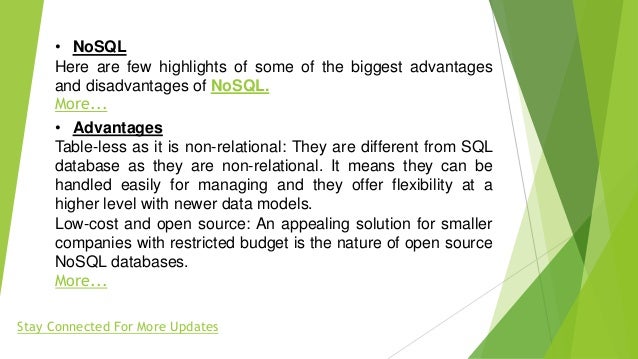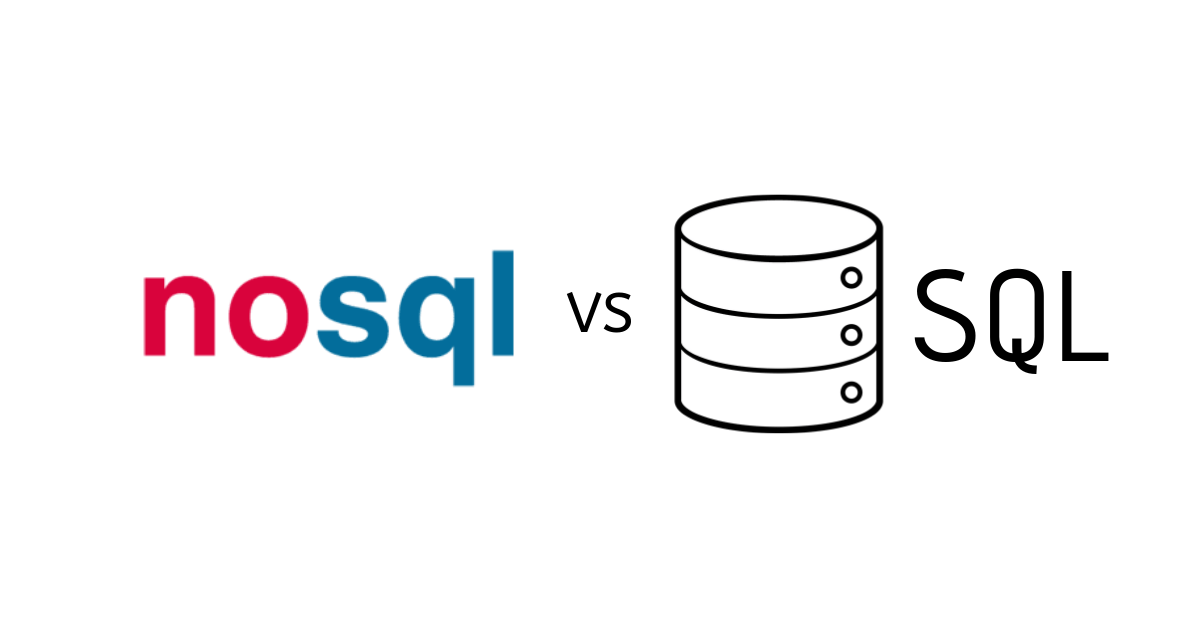

NO SQL VS MYSQL FULL
Multiple options available (e.g., full backups, transaction logs) Limited options (e.g., file-level copies) Multiple options available (e.g., binary logs, full backups)

Varies (Some support SQL-like queries, others have custom query languages)įlexible (unstructured or semi-structured) Provides flexibility in data structures and efficient handling of unstructured or semi-structured data Offers more advanced features and complex relationships between tables Comparison of Database Technologies: MySQL, SQLite, SQL, and NoSQL Comparison Pointĭoes not require separate server process (implementation-dependent)

Consider factors such as data complexity, scalability, performance, and ease of use to determine the most suitable database technology for your project. Overall, choosing between MYSQL, SQLite, SQL, and NoSQL depends on your specific needs and requirements. NoSQL databases offer greater scalability, faster data storage and retrieval, and are well-suited for handling unstructured or semi-structured data. They do not rely on fixed rows and columns but rather allow different formats that best suit the data being stored. On the other hand, NoSQL databases are non-relational and offer more flexibility in terms of data structures. They are highly structured and excel in handling complex relationships between tables. SQL databases, including MYSQL, are relational databases that organize data into structured tables. In addition to MYSQL and SQLite, there is a broader distinction between SQL and NoSQL databases.

While they may not offer the same scalability as MYSQL, SQLite databases are suitable for small to medium-sized applications that prioritize simplicity and portability. SQLite databases are file-based and do not require a separate server process, making them easy to deploy and use. It is designed to be embedded within applications, requiring minimal configuration and administration. On the other hand, SQLite is also a relational database management system, but it is known for its lightweight nature. Over the years, MYSQL databases have focused on reducing data duplication, making them efficient for storing and retrieving data stored in rows and tables. They excel in handling multi-row transactions and complex relationships between tables. MYSQL databases are relational, meaning they organize data into structured tables with predefined schemas. MYSQL and SQLite differ in several key aspects. SQLite is a lightweight database that offers its own unique advantages. However, as the landscape of unstructured data, storage capabilities, processing power, and analytics requirements has evolved, newer database technologies like SQLite have emerged to address these changing use cases. It is widely known and familiar to those who work with databases. MYSQL has been a prevalent method for accessing relational databases for several decades. In this article at OpenGenus, we will explore the differences and similarities between MYSQL, SQLite, SQL, and NoSQL, helping you make an informed decision based on your specific requirements. Additionally, there is a broader distinction between SQL (Structured Query Language) and NoSQL (Not Only SQL) databases. MYSQL and SQLite are two popular choices for developers, each offering unique advantages. When it comes to managing data, choosing the right database technology is crucial for efficient storage and retrieval. Table for Comparison of Database Technologies: MySQL, SQLite, SQL, and NoSQL.


 0 kommentar(er)
0 kommentar(er)
